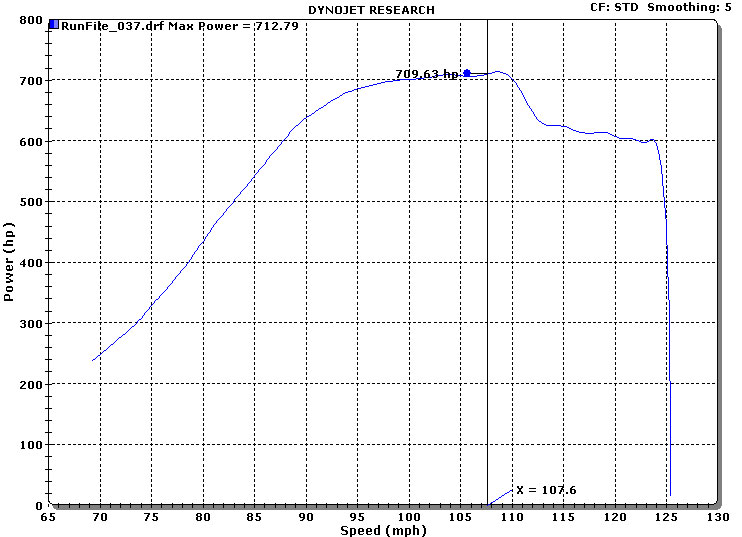Trying to find the right brake fluid for your vehicle? There are many different brake fluid brands on the market today, and some people feel that Castrol SRF is one of the best. Recently, Tilton Engineering released their own new line of high performance and racing brake fluids. A test conducted for Tilton Engineering’s brake division, TB&C (Tilton Brake & Control), reveals the differences between these premium fluids.
Castrol SRF v Tilton TSR-1 – a comparison of Wet Boiling points and Wet Vapor Lock Points
Introduction
Castrol SRF is a brake fluid used in racing. The product is unusual in being based on silicate ester technology. This technology enables a high boiling point and in Castrol’s literature is also reported to give a wet boiling point of > 260°C. It was desired to measure the wet boiling point of Castrol SRF and compare this with Tilton’s equivalent product (TSR-1) which is based on borate ester technology.
Experimental
Two initial “trial” humidifications were conducted using the method contained in the SAE J1704 specification modified to include both Castrol SRF and Tilton TSR-1 within the same desiccator.Four further humidifications, using the normal SAE J1704 method, were then conducted -2 on each fluid. Water contents of both the control and test fluids were measured at the end of each test and a correction factor applied as outlined in OAM 2 to establish true water pickup. Boiling points of a least one humidified fluid of each type were taken. Due to the very unusual boiling point behaviour shown by the Castrol SRF this test was repeated.A standard series of samples was then prepared by adding measured percentages of water to a new example of each fluid, the percentages being designed to cover be water pickup range during their service life of the fluid. The Vapor Lock Point of these samples was then determined using a Castrol “Showa” Vapor Lock tester. The boiling behavior of these samples was also observed using the standard SAE norms.

2. Observed Boiling Point of Castrol SRF -samples from first and second humidification tests
First bubbles visible at 110° C. From 140 -180° C product refluxes at between 0.5 and 1 drops/sec. From 180 -190°C product refluxes at 1-2 drops / sec. By 210°C refluxing has almost stopped and a heavy crystalline precipitate is visible on the wall of the condenser. From 210 – 270°C there is little or no reflux. From 270 to 290°C reflux commences finally stabilising at around 285°C at 1-2 drops a second. No difference in boiling behaviour was observed between humidified fluid and fluid to which an equivalent percentage of water had simply been added.
3. Samples with added water –ERBP and VLP tests
Conclusions
From the results observed it would seem that the Castrol SRF is in fact substantially inferior to the Tilton product in the area of true wet boiling point. Although the Castrol product absorbs far less water than the Tilton product, this water is less firmly bound and therefore may be released in the form of vapor at lower temperatures.
It is true that if one uses strict SAE J1704 test criteria then the Castrol wet boiling point is ultimately considerably above 260°C which is well in excess of the Tilton product. However this ignores the fact that the current test procedure is not designed for products such as SRF and allows an earlier period of reflux at a relatively low temperature. This early reflux is prevented from being recorded as the true wet boiling point by the deposit of the water in the form of hydrate on the condenser surface. Naturally when in the braking system this could not happen.
For any comparison between Castrol SRF and more conventional fluids therefore, the Vapor Lock Point will be far more relevant than wet boiling point as the Vapor Lock tester simulates boiling behaviour in a closed system. Indeed the only reason for measuring boiling point in the laboratory is to obtain an idea of what the Vapor Lock Point will be when in the braking system.
If we then compare the Vapor Lock Points of the two fluids, it becomes clear that while both fluids start life at a similar very high level, over most of the water pickup “range” the Vapor Lock Point of the Tilton fluid is substantially higher. However this advantage is apparently only present when water content are higher, that is, in the second half of the fluid’s anticipated service life, the Castrol product appearing to enjoy an advantage when water contents are lower.
Closer examination of these figures however shows that this “Castrol advantage” may well be an illusion. Because of the very low levels of water present in the SRF early in its service life, sufficient vapor to actually lose the brakes completely (true Vapor Lock) may not be generated. However the quantities of vapor that will be generated are quite sufficient to cause substantial lengthening of the pedal stroke and partial loss of brakes. This can be confirmed by visual observation of bubbles rising during the boiling point tests and by the fluid discharge during the Vapor Lock test as noted in the results. Confirmation of this would require setting up a simulated brake system in an oven.
In order to corroborated by an independent test laboratory who conducted a wet boiling point test. The result was almost identical. Water pickup in the Case tests was 1.67 and 1.65% on two separate samples of SRF.
















